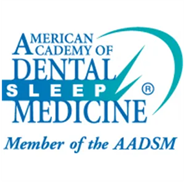A General Dentist Answers Questions About Oral Sedatives

When your general dentist says you need an oral sedative, you might have questions. There are many reasons why you might want or need an oral sedative. You may experience a lot of anxiety, or you may need a procedure that can cause discomfort. General dentists use several different kinds of oral sedatives to help patients. Each type has pros and cons, depending on the patient. Here are a few questions you may have for your general dentist about oral sedatives.
What do patients take an oral sedative for?
Many people experience severe anxiety when going to the dentist. This anxiety is so strong that some patients even avoid going to dental appointments. Oral sedatives can help a patient relax enough so the dentist can perform procedures. Other common procedures that the dentist may perform include placing fillings or crowns. When the dentist is working in the patient’s mouth, it can increase the patient’s anxiety. An oral sedative allows the patient to relax and not endanger themselves or the dentist.
What happens when a patient takes an oral sedative?
The oral sedative usually begins working quickly. Patients generally experience the effects of oral sedatives in the first two hours. But effects can linger for several hours afterward. Most patients feel very relaxed physically. Often, patients do not remember very much of what happened during the visit. The dental staff watches patients during the procedure, but patients usually do not have any trouble sitting still.
What other factors should patients consider?
Fortunately, oral sedatives are not very expensive and are easy to obtain from the general dentist. When a patient takes an oral sedative in preparation for a procedure, they do not need an anesthesiologist. Taking an oral sedative also works with many diseases and conditions that make other sedatives less effective. Patients should discuss their medical histories with the general dentist first. However, because oral sedatives are not given through an IV, it is not as easy to adjust dosage for patients.
When is an oral sedative not the right choice?
Some patients are allergic to specific medications, including oral sedatives. Patients also need to be forthcoming about any substance abuse that could affect the way that the oral sedative works. Other medical conditions could prevent a patient from using an oral sedative for a dental procedure. And some medications for bipolar disorder or depression mean that an oral sedative is a bad idea. Finally, patients need to have someone who can take them home after the office visit since an oral sedative can make it dangerous for a patient to drive.
How can the patient prepare for oral sedation?
Following the dentist’s instructions is important. The dental team will give the patient instructions before arriving at the clinic. The instructions will depend on the type of sedation the patient will have. For nitrous oxide, the dentist will ensure that the patient is under before the treatment starts. For oral conscious sedation, the dental team will tell the patient when to take the sedative.
Filing a sick leave or some time off is also necessary. The patient will be drowsy after the treatment. Going back to normal activities will not be possible for the rest of the day. The patient must stay put at home until the sedation fades.
Having someone to care for the patient is necessary. A friend or family member can be the caregiver for the day. The patient will not be able to drive home. Those who will have oral conscious sedation will take the pill before leaving the house. The caregiver will need to drive the patient to the clinic and back home. Children will need two responsible adults to accompany them.
What should the patient bring to the appointment?
Patients can bring anything that can relax or soothe them during the appointment. Music, pillows, and plushies can help. Some patients bring asthma inhalers, extra oxygen, and medications in case of emergencies. Someone should always be with the patient in case anxiety attacks happen.
What should the patient expect at home after the treatment?
The answer differs from person to person. Sleepiness can happen even when the patient reaches home. Other patients may experience alertness. Someone must still look after the patient until the sedative effects have faded. This often takes six to eight hours.
A general dentist’s goal is to provide a good experience
Your general dentist’s goal is to make you as comfortable as possible. When you have anxiety, it can make it difficult or impossible to get the dental care you need. An oral sedative can improve your experience and outcome. Talk to your dentist about any other concerns you may have.
Request an appointment here: https://www.feelgooddentistry.com or call Feel Good Dentistry at (305) 230-4484 for an appointment in our Miami office.
Check out what others are saying about our dental services on Yelp: General Dentist in Miami, FL.
Related Posts
Biannual dental cleanings or checkups are essential to maintaining optimal oral health. During the checkups, many believe the main priority is to remove plaque and tartar. However, while dental cleanings are a major aspect, these appointments enable the dentist to inspect your mouth for any abnormalities that may worsen if left untreated.Tooth decay, or the…
Dental cleanings are a critical element in any overarching oral health maintenance plan. Knowing what happens during a dental cleaning can help relieve some anxiety beforehand, so you do not have to worry about the unknown.Outlined below is a step-by-step guide to getting a dental cleaning. Reviewing this information ahead of time can help relieve…
Seeing your dentist for professional dental cleaning during your regular visits can help prevent gum disease. Studies show that this condition develops at a slow pace. It occurs when food particles and bacteria get into the gum pockets. Here are details on how a routine dental cleaning can prevent gum disease.Plaque forms every day on…
Dental cleaning can help prevent you from having bad breath. We have all had those moments when we are suddenly self-conscious about our breath. Bad breath is clinically known as halitosis. It is an inconvenience that many face, often resulting from poor dental hygiene. Having a good cleaning routine can help keep bad breath away.…




